The hero rescuer who was swept to his death
- Published
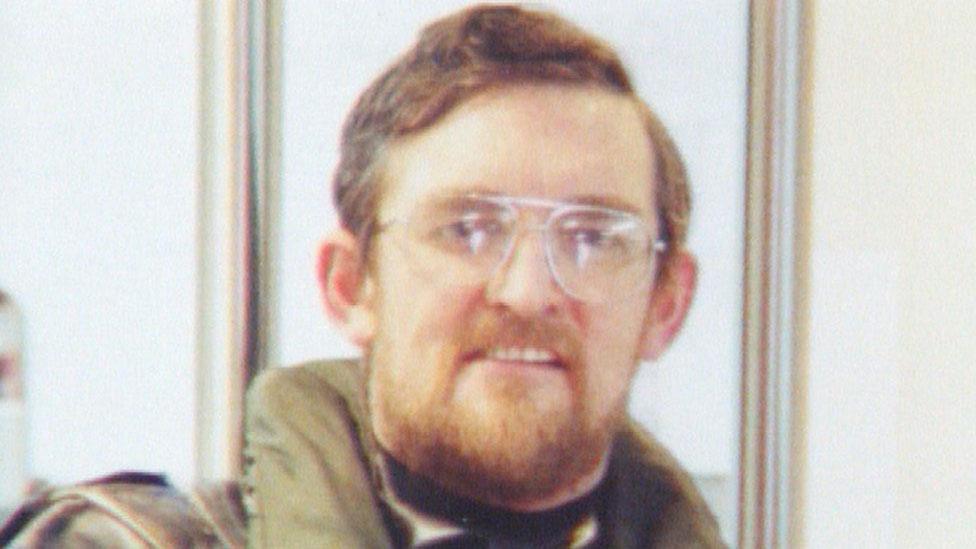
Bill Deacon saved 10 crew members from the Green Lily and was awarded the George Medal
Bill Deacon was a "quiet and unassuming" hero who, in mountainous seas off Shetland, saved the lives of 10 people before losing his own.
The helicopter winchman was washed off the deck of the cargo vessel Green Lily by a 50ft wave as he waited to be lifted to safety himself.
After his death, exactly 20 years ago, Mr Deacon became the first member of the Coastguard service to receive the George Medal.
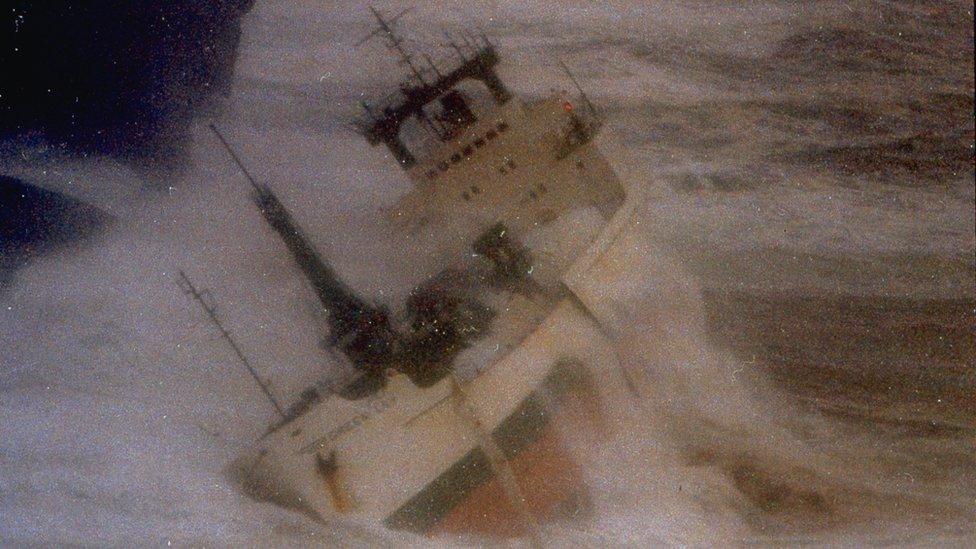
The Green Lily ran aground off Bressay in November 1997
His bravery and that of the Coastguard and RNLI lifeboat crews involved are being remembered at a wreath-laying off the coast of Bressay.
Before Mr Deacon, from Ellon in Aberdeenshire, had helped the final 10 of the Filipino and Croatian crew to safety, the first five were taken off by lifeboat.
The coxswain of Lerwick Lifeboat, Hewitt Clark, said at that time that the Green Lily crew failed to realise the gravity of the situation and had behaved as though they were "on a picnic".
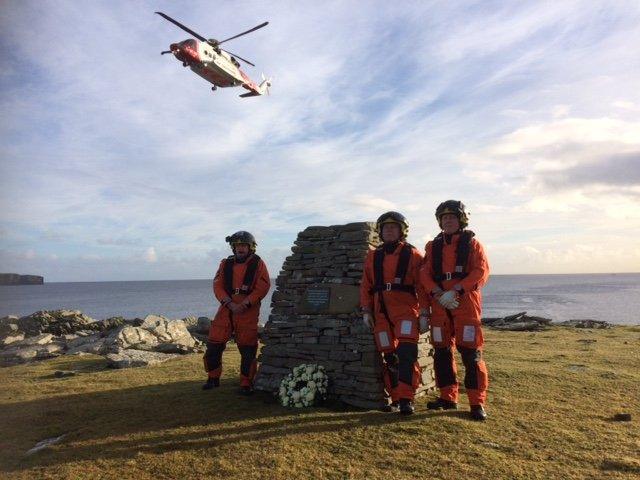
A Coastguard helicopter crew has laid a wreath at the memorial cairn on Bressay
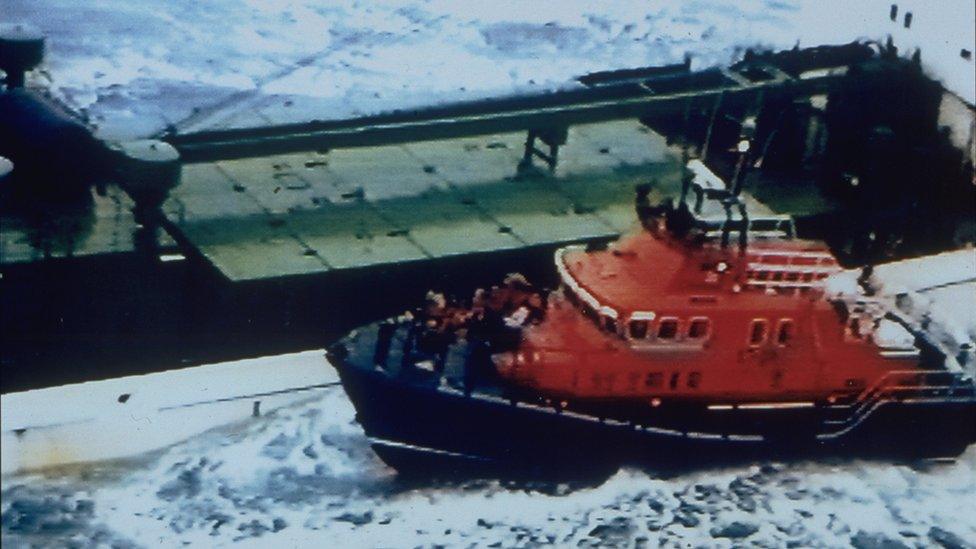
Volunteers from the Lerwick lifeboat come to the aid of the Green Lily
Twenty years later Mr Clark, one of the most decorated lifeboat crew members in history, said he was "frustrated" the crew had not abandoned their stricken vessel when he had told them to.
The 3,500 tonne vessel got into trouble 15 miles after setting sail from Lerwick carrying a cargo of frozen fish to the Ivory Coast.
By the time the lifeboat arrived the tow line from a tug boat had snapped and the Green Lily was heading towards the rocks in a force 11 storm.
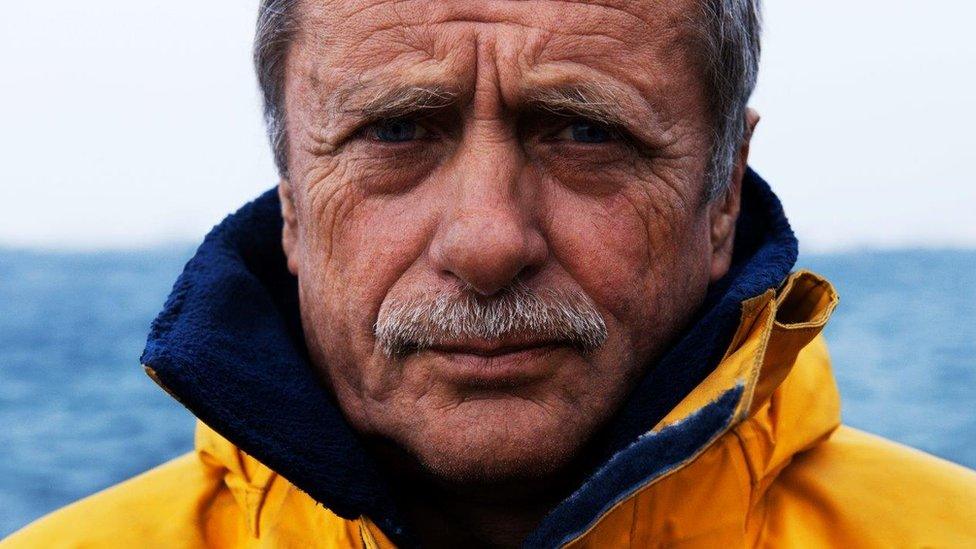
Lifeboat coxswain Hewitt Clark won the RNLI gold medal for his actions that day
"We took the lifeboat in several times but there was no-one ready to come," Mr Clark told BBC Scotland.
"I was pleading with the captain to let his crew go, to abandon ship, but they seemed reluctant to do it.
"They seemed to be unaware of the serious situation they were in."
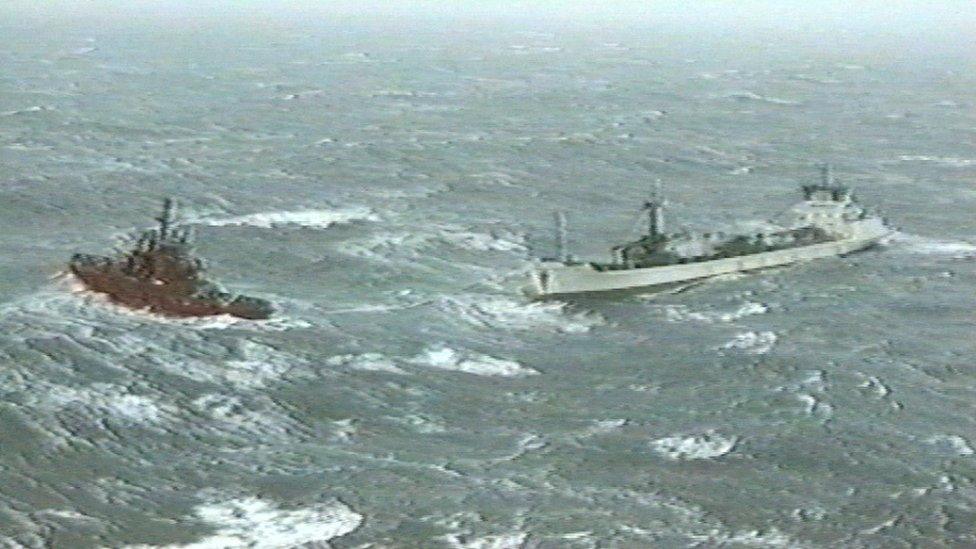
The lifeboat rescue of the Green Lily filmed from Coastguard helicopter
Lifeboat man Michael Grant told the BBC that when the tow line snapped there was no alternative to taking the men off by lifeboat.
It went alongside the Green Lily "time and again" but nobody came on to the lifeboat.
Mr Grant says: "Eventually four or five men turned up, suitcases in hand.
"We got back alongside and manhandled the guys off the boat.
"We had the first five off and we were making runs in to get more men but there was nobody there at all."
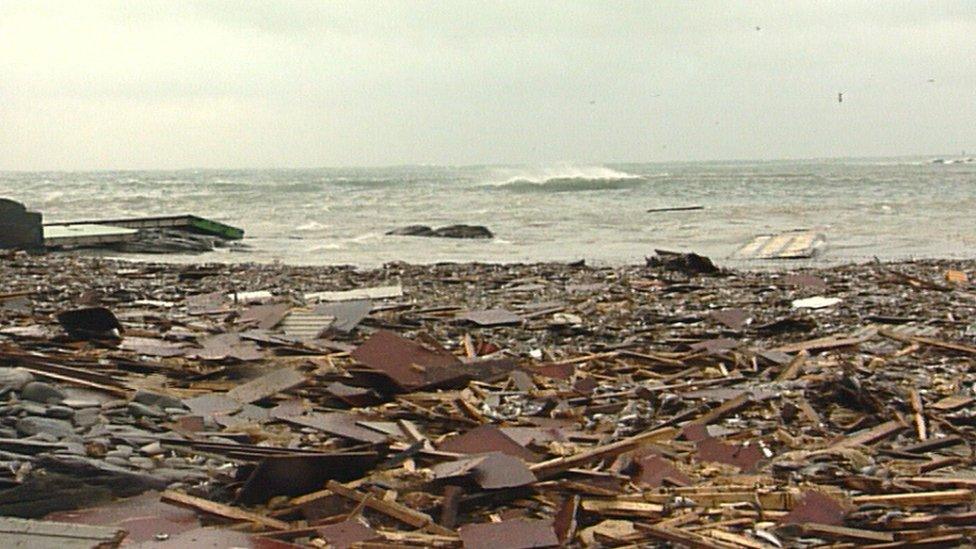
Debris from the wreck of the Green Lily washed up on Bressay
Mr Grant says: "It was really frustrating.
"I remember the lifeboat crew looking at each other as if to say 'we are here and you obviously do not realise that this boat is going on to the rocks'."
Eventually the boat swung around and the lifeboat crew could no longer get alongside.
They took the lifeboat to safer water and the helicopter made a final attempt to get the remaining crew members off the ship.
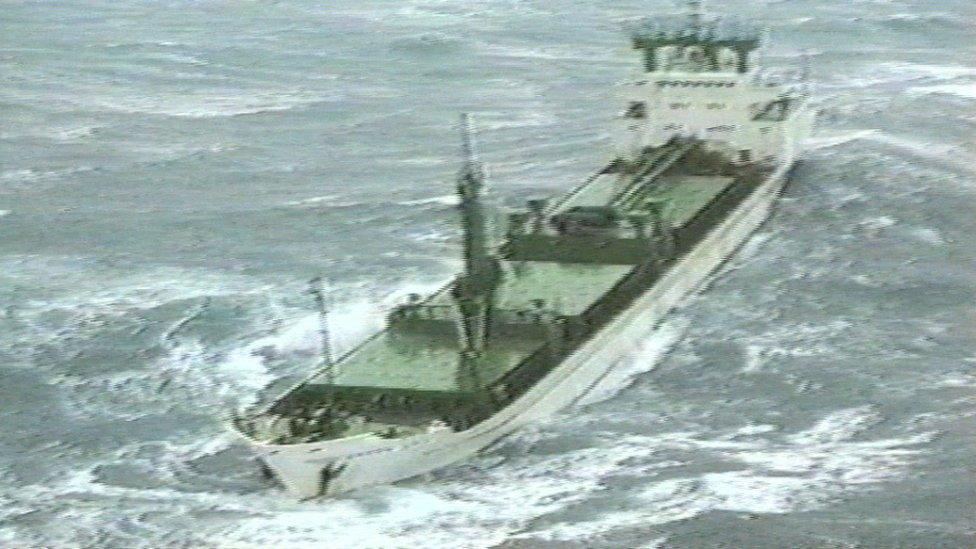
The Green Lily in stormy seas off Bressay
Norman Leask, the pilot of the Coastguard helicopter, told BBC Scotland: "We winched Billy down on to the deck and started winching the survivors back on to the aircraft.
"As the first two were coming up the anchor cable that had been snagged by the tug boat broke and the ship started drifting back towards the shore again."
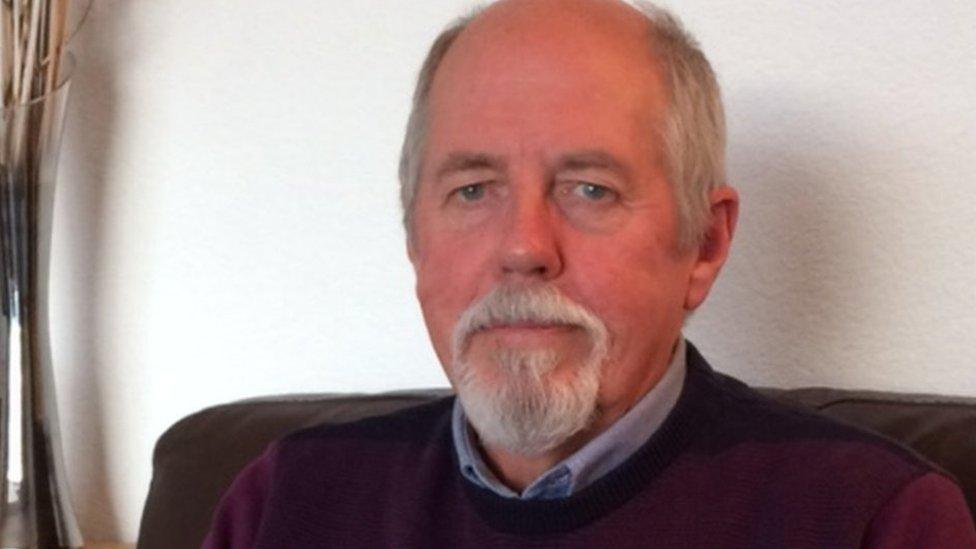
Norman Leask was the pilot of the helicopter on the day
Mr Leask says the ship was heading for the rocks but the helicopter crew were "committed" to carrying on despite the dangers.
"We carried on winching and as the last two were coming up we tried to signal to Billy to come up with them as a three-man lift but, for whatever reason, he sent them up on their own," he says.
"We had no radio communication with him at the time.
"As we were getting the winch ready to go down and pick him up the ship was aground and the waves were breaking over it. Billy was washed overboard."
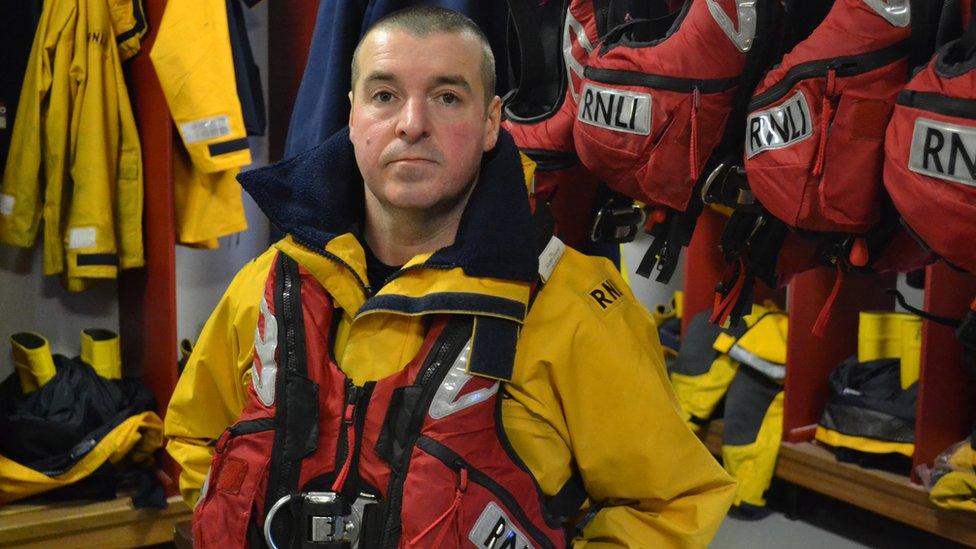
RNLI lifeboat Michael Grant says there was no way the boat could go back
At the same time as Billy was swept into the sea the winch got tangled in the mast of the Green Lily which was "rolling pretty violently at this stage".
The snagged winch started to drag the helicopter about and the operator decided he had to cut it loose to save those on board.
This meant there was no winch available to attempt to get Billy from the water.
Mr Leask says: "We pulled off and we could see Billy in the water.
"He'd been thrown against the side of the ship several times by the waves. We were 30ft or 40ft away from him and there was nothing we could do about it.
"I have never felt so helpless in my life."
The lifeboat could not aid Billy either.
Mr Grant says: "There was no way we could take our boat back into those conditions. There was no way we could do it. Simple as that."
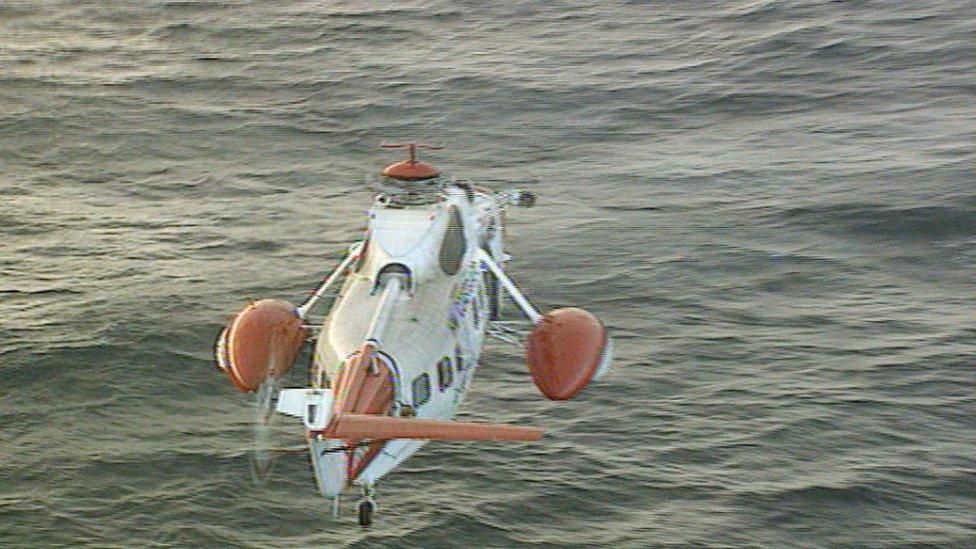
A Coastguard helicopter from the time of the rescue
Both the lifeboat crew and the pilot knew there was nothing they could do to save Billy.
Mr Leask says he could see the winchman's life jacket was inflated but his helmet was gone and there was no sign of life.
His body was recovered the next day after a search by another helicopter.
Procedures for airlifting winchmen were changed following the accident.
Winchmen are now briefed that in severe conditions they should come up in a triple lift.
Many improvements
The Shetland helicopter now has a second winch for use if there is a fault with the first.
Mr Leask, who is now retired, says there have been many improvements in the years since the Green Lily rescue.
He says he has thought about the events of that afternoon every day for 20 years.
"The whole thing from starting to winch to finishing took 15 minutes," he says.
"It seemed like a lifetime."